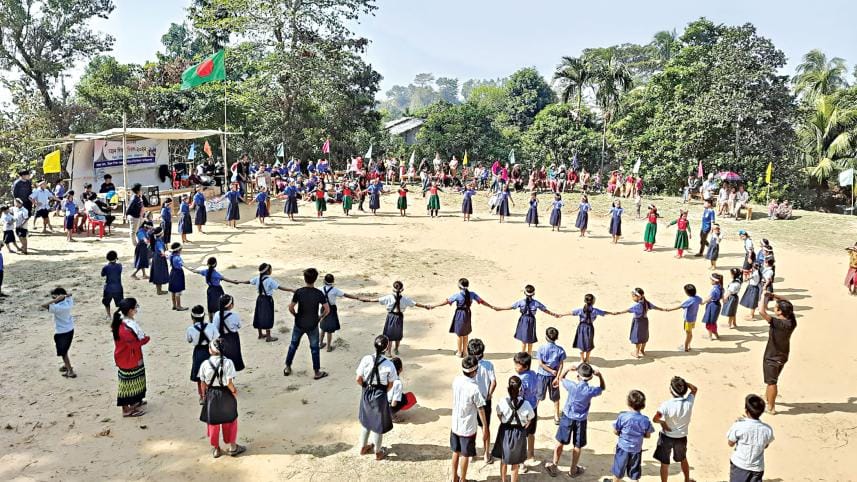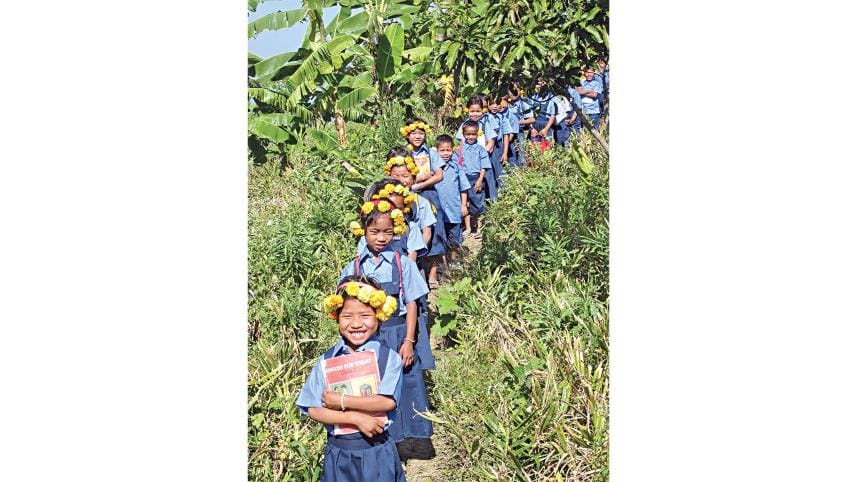Spreading education to Bandarban hills

Hundreds of children belonging to different indigenous communities along the Myanmar border in Bandarban's Thanchi upazila are largely deprived of education, as civic facilities are yet to reach the remote area.
However, every cloud has a silver lining.
Humanitarian Foundation, under its Rowa Kyang project, runs 23 schools with 46 teachers and thereby provides education to 948 children belonging to the indigenous communities, including Khumis, Tripuras, Bawms, Mrus and Marmas.
Each school is run by two teachers.
"There was no primary school in my village during my childhood. I had to walk 10 kilometres every day to go to the closest school in Thanchi Bazar area," said Mang Mang Singh Marma, founder of Humanitarian Foundation.

The foundation initiated the schools in 2004, aiming to ensure free education for all children till grade five. After finishing primary school, the students are brought to the district town where they finish their Secondary School Certification by staying at different hostels.
"After completing SSC, we consult with students regarding their career choices, and facilitate their higher education, be it at public or private universities, medical colleges or diploma institutes," Mang Singh said.
Around 18 students are currently pursuing higher education at different institutions, including Buet, Dhaka University, and Jahangirnagar University, among others.
"They all receive a monthly stipend under our scholarship programme," Mang Singh added.
Mue Shai Thui Marma, Ruma union parishad chairman, said, "This foundation is providing education in these remote villages. The government should step up to support them."
Contacted, Abdul Mannan, primary education officer in Bandarban, said the government builds schools if locals donate land for it.
Privately-run primary schools, if approved by the government, will receive textbooks for the national curriculum and training for teachers, following inspections, he added.




 For all latest news, follow The Daily Star's Google News channel.
For all latest news, follow The Daily Star's Google News channel.
Comments